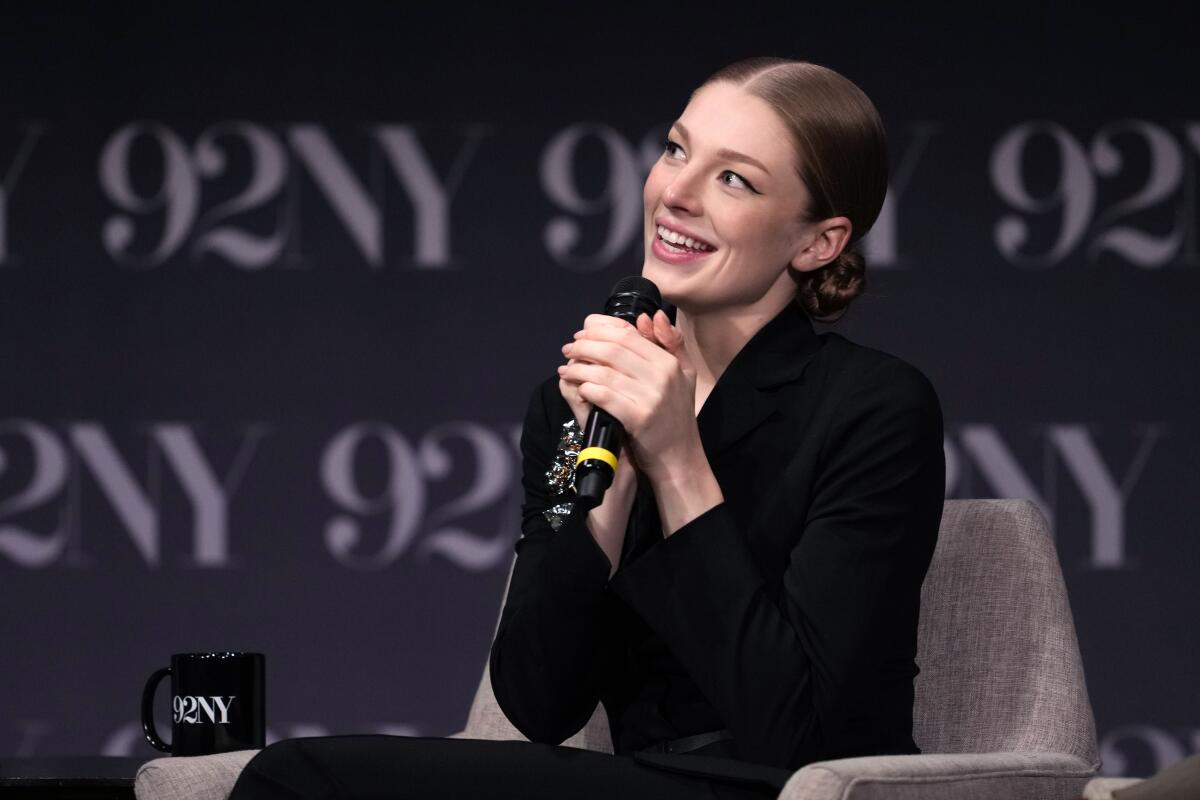Hunter Schafer, known for her breakout role in the hit HBO series Euphoria, has been making waves in the entertainment industry with her talent and unique perspective. As a transgender actress, Schafer has been vocal about the importance of representation for the LGBTQ+ community in media.
However, recently she has made the decision to shift away from taking on exclusively trans roles, in order to explore a wider range of characters and challenge herself as an actress. This evolution in her career reflects a larger trend in Hollywood towards casting more authentically and allowing actors to play characters that align with their own identity and experiences.
By taking on roles that are not solely defined by her gender identity, Schafer is showcasing her versatility and talent as an actress, while also breaking down stereotypes and pushing for more inclusive and diverse storytelling in the industry.
Her decision to move away from exclusively trans roles is a powerful statement about the importance of representation and the need for actors to be able to play a variety of characters, regardless of their gender identity. As Schafer continues to navigate her career and make bold choices in her roles, she is setting an example for other actors and challenging the status quo in Hollywood.

Breaking Free from Typecasting
Typecasting is a common practice in the entertainment industry where actors are often pigeonholed into playing certain types of characters based on their appearance, ethnicity, or previous roles. This can be limiting and frustrating for actors who want to break free from these stereotypes and showcase their range and versatility.
Breaking free from typecasting requires actors to be proactive in seeking out diverse and challenging roles, as well as actively working to change public perceptions of their abilities. By taking on roles that challenge stereotypes and showcase their talents in new and unexpected ways, actors can begin to break free from the constraints of typecasting and show audiences and casting directors that they are capable of much more than the narrow roles they have been assigned.
It can be a difficult and uphill battle, but with determination and perseverance, actors can successfully break free from typecasting and forge new paths in their careers. Ultimately, breaking free from typecasting is about reclaiming agency and autonomy over one’s career and refusing to be limited by the narrow definitions and expectations imposed by others.
It is about pushing boundaries, taking risks, and proving that talent and skill are not defined by stereotypes or preconceived notions. By breaking free from typecasting, actors can open up new opportunities for themselves and pave the way for greater diversity and representation in the entertainment industry.
The Journey from Activism to Acting
The journey from activism to acting is a powerful transformation that allows individuals to use their voices and platform to advocate for change. Activism involves speaking out against injustices and working towards creating a more equitable society. This passion for social justice can often lead individuals to pursue a career in acting, where they can use their platform to bring attention to important issues and inspire others to take action.
By using their talent and influence, actors can bring awareness to important causes and amplify the voices of those who are marginalized or oppressed. Through their performances and public appearances, actors can shed light on social issues and spark conversations that lead to greater understanding and change. The journey from activism to acting is a natural progression for those who are passionate about making a difference in the world and using their talents to create positive change.
By using their platform to advocate for important causes, actors can inspire others to join the fight for justice and equality. This transformation allows individuals to not only raise awareness about important issues, but also to actively engage in creating a more just and equitable society for all.

Embracing Diverse Narratives
Embracing diverse narratives is essential in fostering understanding and empathy within society. Each individual has a unique perspective shaped by their own experiences, beliefs, and cultural background. By embracing diverse narratives, we can learn from different viewpoints and gain a deeper understanding of the world around us.
This can lead to greater tolerance, acceptance, and appreciation of others, regardless of their differences. It allows us to see the world through someone else’s eyes and challenge our own preconceived notions. By listening to and valuing diverse narratives, we can break down barriers and build connections with people who may have different beliefs or experiences than our own. This can lead to a more inclusive and harmonious society where all individuals feel valued and respected.
Embracing diverse narratives also allows for a more holistic approach to problem-solving and decision-making. By considering a wide range of perspectives, we can come up with more innovative and effective solutions to complex issues. Overall, embracing diverse narratives is crucial for creating a more understanding, inclusive, and compassionate society where all individuals are able to thrive and contribute their unique gifts and perspectives.
The Importance of Authentic Representation
Authentic representation in media and art is essential for ensuring that all individuals feel seen, heard, and valued. When marginalized groups are consistently misrepresented or underrepresented, it perpetuates harmful stereotypes and contributes to a lack of understanding and empathy towards those communities.
Authentic representation allows for a more accurate reflection of the diverse world we live in, helping to challenge biases and misconceptions. It also provides opportunities for individuals to see themselves reflected positively in the media, which can have a powerful impact on self-esteem and confidence. Additionally, authentic representation can lead to more inclusive and diverse storytelling, providing a more nuanced and rich portrayal of human experiences.
When creators take the time to accurately depict the experiences and perspectives of different groups, it can foster greater empathy and understanding among audiences. In a globalized world where media and art have a significant influence on our perceptions and attitudes, authentic representation is crucial for promoting acceptance, respect, and appreciation for all individuals, regardless of their background or identity. By prioritizing authentic representation in our media and art, we can work towards creating a more inclusive and equitable society where everyone feels valued and respected.

The Future of Trans Representation in Hollywood
The future of trans representation in Hollywood is evolving as more and more trans actors and actresses are being cast in leading roles. This shift towards inclusivity is not only important for the trans community, but also for the entertainment industry as a whole. By allowing trans individuals to tell their own stories and portray characters that reflect their lived experiences, Hollywood is moving towards a more authentic and diverse representation of gender identity.
However, there is still much work to be done in terms of ensuring that trans actors are given equal opportunities and are not typecast in stereotypical roles. It is crucial for casting directors and producers to actively seek out trans talent and provide them with the same opportunities for success as their cisgender counterparts. Additionally, the industry must continue to listen to and prioritize the voices of trans individuals in the creative process, from writing to directing to producing.
By doing so, Hollywood can help to break down harmful stereotypes and create a more inclusive and representative media landscape for all audiences. Ultimately, the future of trans representation in Hollywood relies on a commitment to authenticity, diversity, and equity in all aspects of the industry. Only by working together and uplifting the voices of marginalized communities can we truly create a more inclusive and representative entertainment industry for future generations.
